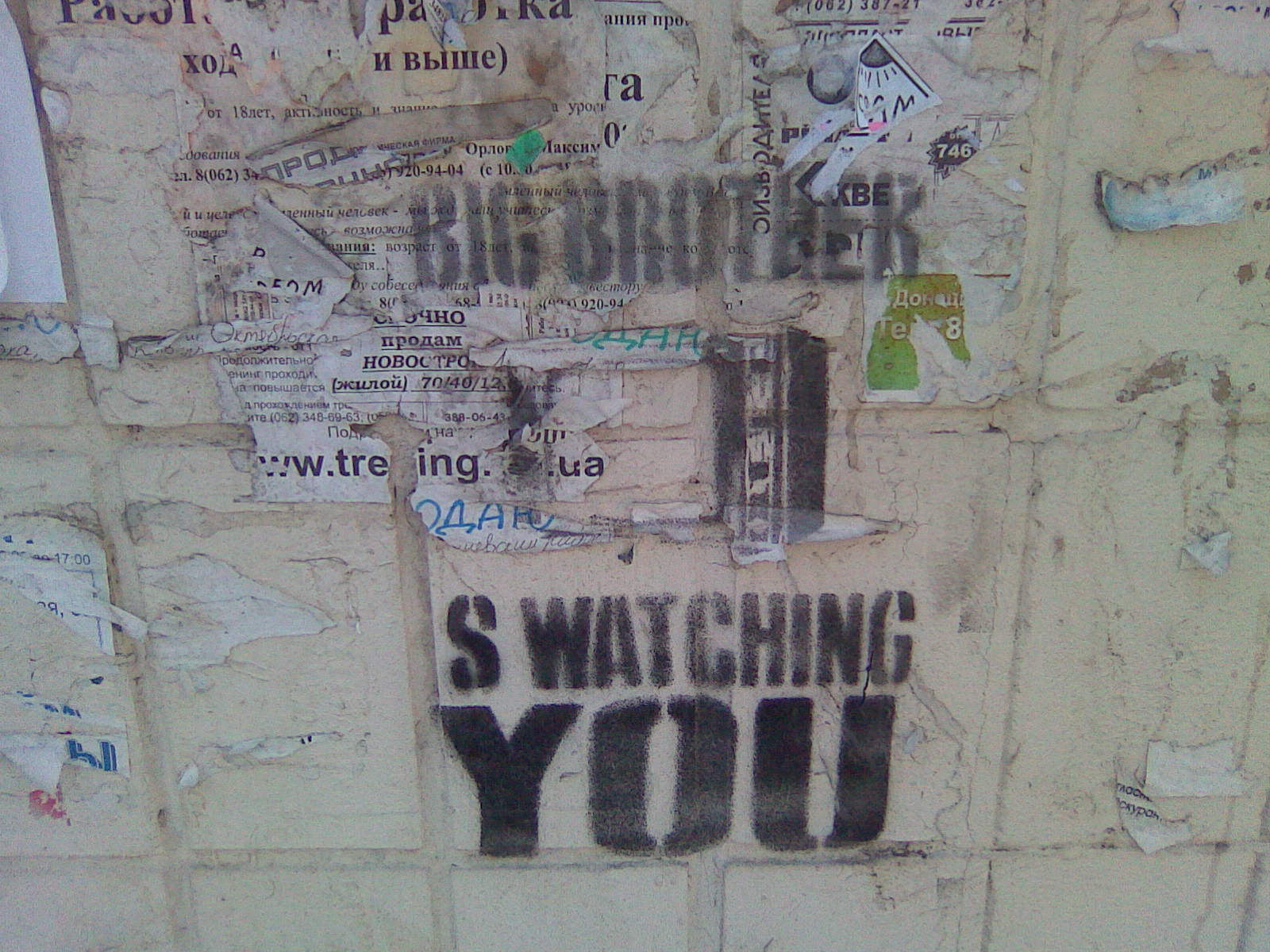 Select Language
Select Language
 ▼
▼

Warning: You are now entering 1984!
1984, a satirical novel written by George Orwell in 1948, features a dystopian world filled with telescreens, Thought Police, and totalitarianism.
Winston Smith, the protagonist, lives in constant fear of being detected by the dreaded Big Brother for his curiousity about the "Brotherhood" as well as his Thought crimes.
Students will reflect on the freedoms they are currently entitled to in contrast to the simulated 1984 environment recreated in room 209.
 |
| Map of 1984's Political Landscape |
 George Orwell Biography and 1984 Book Summary
George Orwell Biography and 1984 Book Summary
Book Summary: A Teacher's Guide to the Signet Classic Edition of George Orwell's 1984 from Penguin Books

George Orwell Biography from The Orwell Prize
For a definition of dystopian, see The Dystopian Novel from H2G2.com, the Hitchhiker's Guide to the Galaxy: Earth Edition

George Orwell's 1944 letter on why he wrote '1984' from George Orwell: A Life in Letters reprinted by The Daily Beast
Lesson Plans for Teaching 1984
For teaching ideas, see Teaching Orwell and 1984 with the Times from the New York Times.
Big Brother vs. Little Brother: Updating Orwell's '1984' also from the New York Times
I Always Feel Like, Somebody Watching Me . . .Teaching 1984 and the Power of Government, posted on the University of Georgia English Education website
Check out this lesson plan for a Thought Police vs. Outer Party classroom simulation! Students will love it and other teachers throughout my school got in on the fun!
Invitation to the Thought Party
 1984 Thought Police invitation.docx
1984 Thought Police invitation.docx
Rule of the game
 1984 Thought Police Game.doc
1984 Thought Police Game.doc
Excellent in-class group assignment. Students will analyze and answer the question "Are we living out George Orwell's prophesy today?"
 1984 Are we living out the prophesy with warm up Qs.docx
1984 Are we living out the prophesy with warm up Qs.docx
 |
| Actors from 1953 CBS TV production of 1984 |
Use a fishbowl-style activity to get the students involved in a 1984 discussion.
- Make name tags for the major and minor characters (listed in document).
- Create a circle with the desks--one desk per character.
- The rest of the class will sit in an outside circle and look on. They are the public and have the opportunity to pose questions also. When the characters in the middle have responded three times, they may exit the circle and hand the name tag on to someone in the outer circle who will then resume the character's position in the activity.
- This document holds questions for the teacher to pose to the class.
- Allow the students who are role playing to hash-out the question for as long as they want. When conversation is dying out or becoming redundant, the teacher should pose a new question. This activity will take a full period.
 1984 Fishbowl.docx
1984 Fishbowl.docx
Exploring Political Language
Go here for the text of George Orwell's famous essay, Politics and the English Language (1946)
Examples of Doublespeak from the Center for Media and Democracy
Simpler Term: If It's 'Orwellian', It's Probably Not from the New York Times, June 22, 2003
The Limits of Clear Language. Nicholas Lemann, Columbia Journalism Review, November/December 2007
Lesson Plans for Teaching Animal Farm

 |
| 1950 anti-communist cartoon from England |
Comments (0)
You don't have permission to comment on this page.